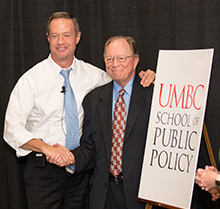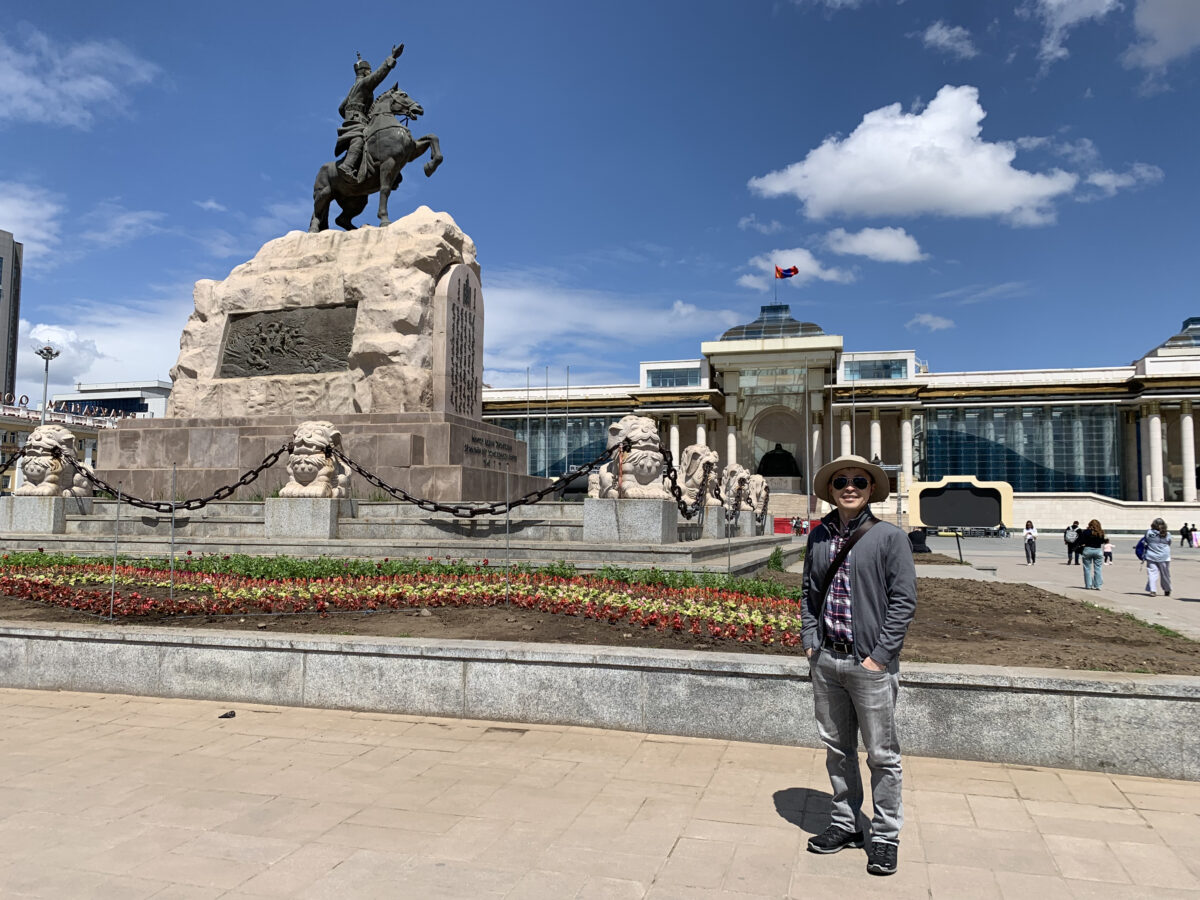Maryland Matters
UMBC establishes a School of Public Policy with regional focus, national presence.
UMBC proudly announced the establishment of a School of Public Policy this November at a special event marking the 40th anniversary of the university’s public policy program. Maryland Governor Martin O’Malley presented the keynote address and officially announced the school.
The UMBC Policy Sciences Graduate Program was conceived as a novel interdisciplinary program that initially had no dedicated faculty or budget. The School of Public Policy, established after four decades of sustained growth, consists of ten full-time faculty and more than 30 affiliated faculty from economics, education, history, sociology, and political science. It is home to more than 130 students and has $23 million in active research grants.
George La Noue, professor emeritus and research professor of public policy and political science, was director of public policy for 18 years and has been involved with the program since its inception. Reflecting back on the program’s lengthy track record of success over the years, La Noue says it has been the perennial commitment to interdisciplinary study that has made UMBC’s program so distinctive.
“The reality is that people don’t stay in narrow vocational slots for most of their lives anymore. They move around,” says La Noue. “So training that’s multi-disciplinary and multi-policy for many students provides the best preparation for a career in public policy.”
Another key to the program’s success has been its focus on policy research impacting Maryland, says Donald Norris, professor and director of the School of Public Policy.
Public policy faculty research some of the Baltimore-Washington region’s most pressing issues, including health, education, poverty, and urban development. Faculty have studied gambling prevalence in Maryland, ambulance response times for heart attack victims, reducing asthma in children who live in low-income households, and implications of Maryland’s Dream Act. These topics have national resonance, but are also tremendously important locally and regionally.
Faculty also maintain strong connections with state and local governments, and bring those connections into the classroom as they involve students in their research.
“We have two really important dimensions,” explains Norris. “We teach students about how public policy is made, and we teach them how to analyze public policy and its impacts.”
Many public policy graduates land jobs working in the public sector, with more than half of public policy students who graduated in the last ten years finding employment in Maryland’s state and local governments, federal agencies, and nonprofits. UMBC students, Norris shares, are “really committed to public service.”
Recent alumni have had a major impact through positions in the Maryland General Assembly, the Maryland Department of Health and Mental Hygiene, Baltimore City, Baltimore County, Harford County, the Social Security Administration, and the Centers for Medicare and Medicaid Services.
After the recent 40th anniversary celebration, La Noue, who is writing a book on the history of UMBC, commented that the success of the public policy program reflects the overall culture of the university.
“There are so many good things happening at UMBC. There’s so much development. This is just one of the many success stories here.”
To read Donald Norris’s recent Baltimore Sun op-ed on the value of studying public policy, click here.
For more information on the School of Public Policy, click here.
(Updated 12/18/2014)
© University of Maryland, Baltimore County 1000 Hilltop Circle, Baltimore, MD 21250 410-455-1000




